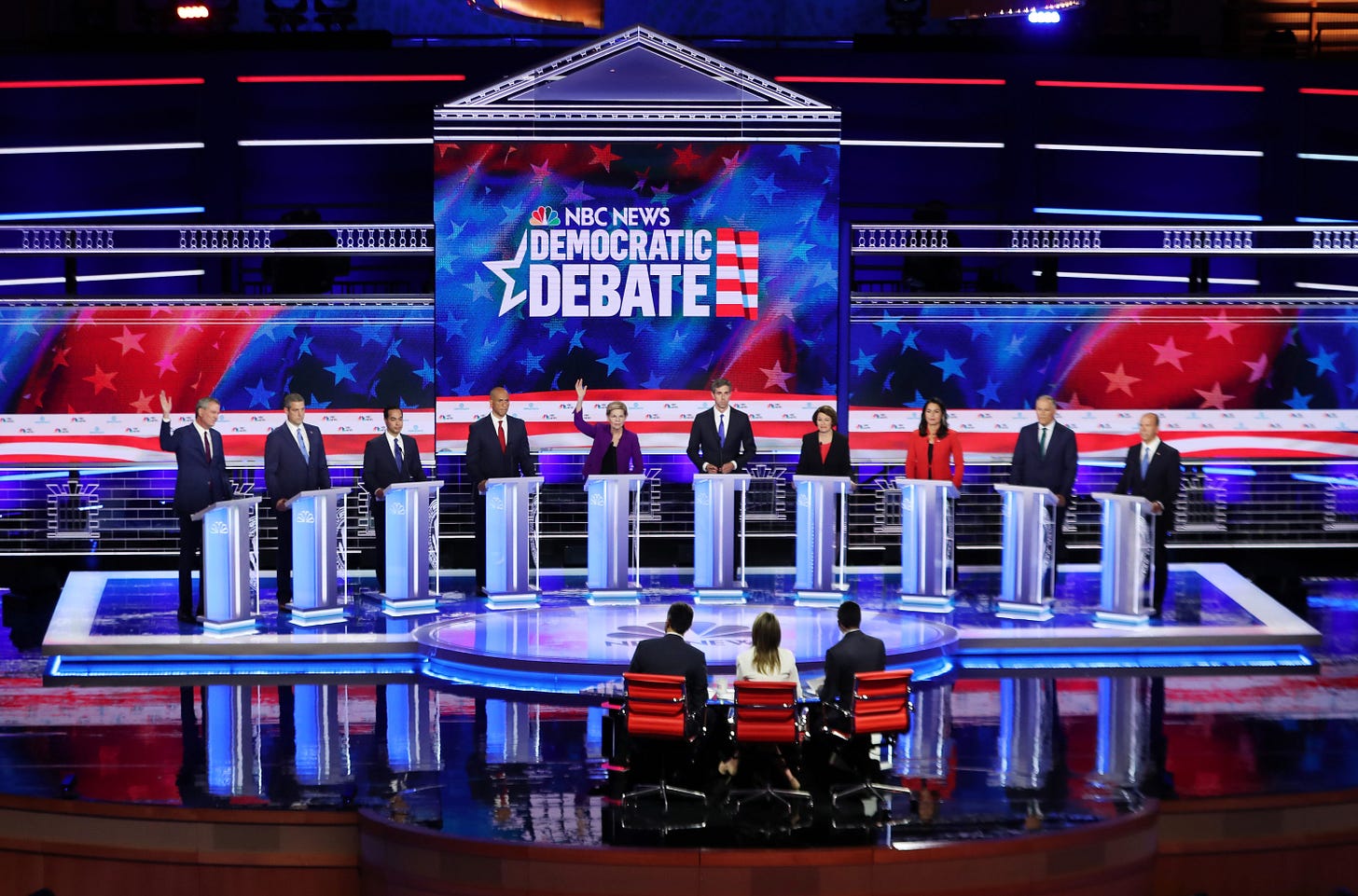Meet the Carbon Copy Candidates
Can anyone tell them apart?
It wasn’t supposed to be like this. After the debacle that was the 2016 election, when the Democratic Party eased its anointed envoy Hillary Clinton into a presidential nomination she promptly flubbed, the powers that be swore they’d learned their lesson.Things would be different next time. The party would refrain from playing an outsize role in the nomination process. No scion chosen in advance: It was anyone’s game, and the only people who decided would be the people.
It’s too early to tell whether that game plan has failed. But if Wednesday’s debate was any indication, the Democrats might meet their fate in 2020 on precisely the road they took to avoid it: ending up with the more or less default candidate—Joe Biden, this time around—not because they discouraged other candidates from challenging him, but because there are too many similar contenders.
In theory, Wednesday’s debate should have been engaging. But it played out as a slog, with each candidate struggling to find an issue—any issue!—on which to stake out some unique ground among the pack.
You want to know who won? Well, OK: For the first 30 minutes, it was the Elizabeth Warren show. Going into the evening, few of the other participants were known quantities with substantial support, so they all had to try to shoehorn their elevator pitches into their response to whatever question the moderators first gave them, which meant each came out of the gate looking sort of foolish and irritatingly slick. Warren didn’t have to bother with that nonsense, so she had the luxury to just answer the questions directly and seize the mantle of policy-focused straight shooter—exactly the role she wants to own—early on.
Once everyone on stage had settled in, however, Warren quickly faded into the background. As a matter of fact, the impression one got from then on was that the debate was all background—a pile of relatively unknown politicians with relatively similar perspectives on pretty much everything straining every nerve to convince the audience that their particular brand of progressivism was what the country really needs. The thing didn’t resemble a political debate so much as an expo for office suppliers: At the end of the day, I doubt I’m going to be that much happier with your glossy paper than I would with the other guy’s, and I know I’m not going to be, like, excited about it.
A few back-benchers made the most of the time: Former HUD Secretary Julián Castro managed to make former favorite Beto O’Rourke play defense a couple times and established himself as a font of immigration policy knowledge by referring to “Section 1325” (the law establishing that immigrating to America illegally is illegal) a lot. But mostly it was all posturing: The most interesting policy disagreement of the whole two hours and change was a momentary spat on foreign policy between isolationist senator Tulsi Gabbard and Ohio Rep. Tim Ryan. (Inkjet or laser?)
And this was only half the candidates! On Thursday night, America will be treated to yet another pile presidential hopefuls, who will struggle the same way to seem unique. At least Thursday’s debate will feature some crotchety septuagenarians; maybe they’ll shake their fists at each other and yell a bit, which would be kind of fun. (And don’t rule out the possibility of a twist ending: Halfway through, the house lights go down, the spotlight hits the tunnel and—my God—is that Hillary Clinton?)
Behind all this weary posturing was an admirable idea: No candidate with a substantial base of supporters should be denied the opportunity to make his or her case directly to the American people. But with 20 making the case, they simply all start to run together. If they can't stand out from one another, can any of them possibly stand up to Donald Trump?



